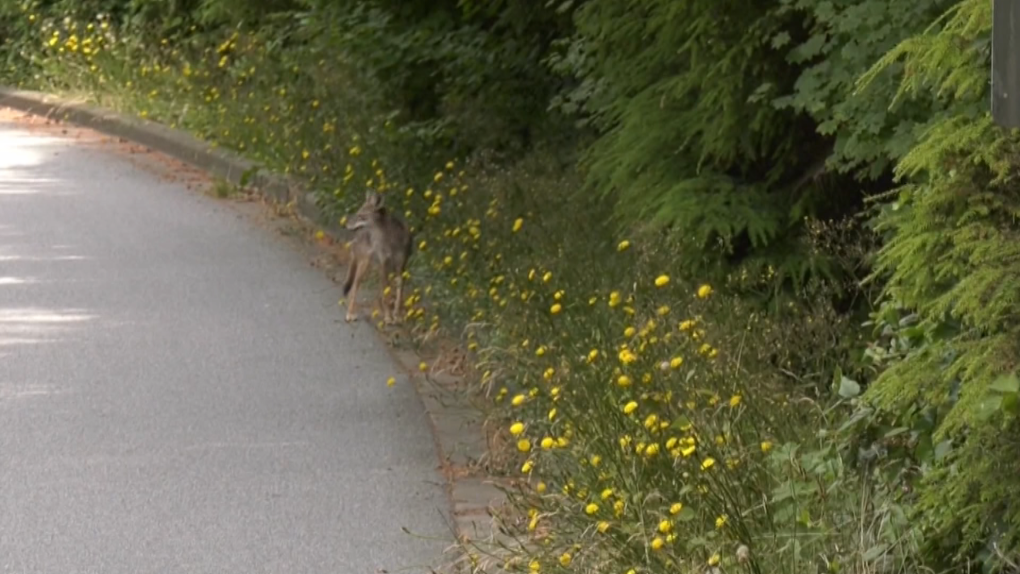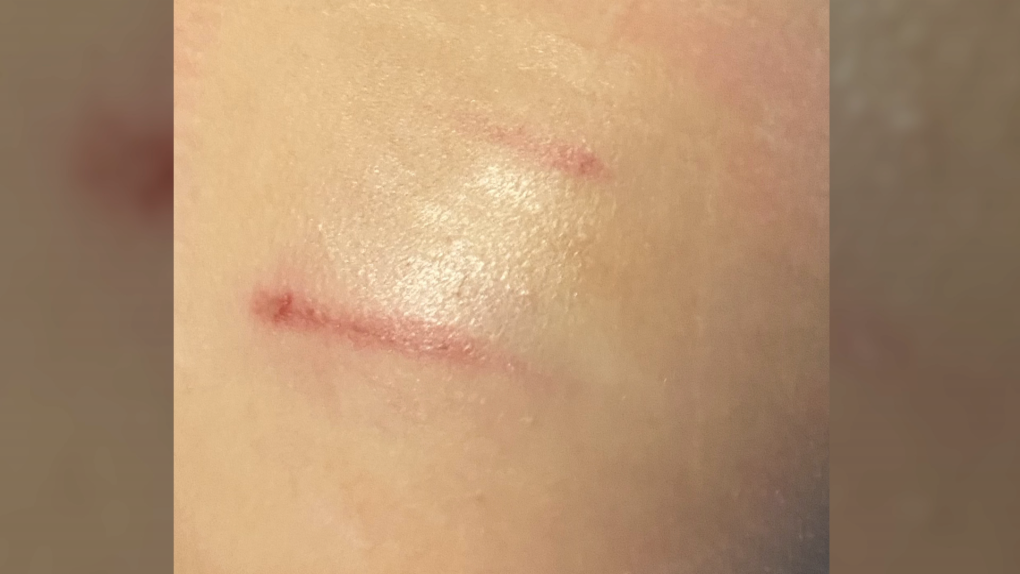Children among victims of 3 coyote attacks on the same day as earlier closure of Vancouver's Stanley Park begins
Conservation officials say three coyote attacks were reported in Vancouver's Stanley Park in a period of a few hours, two of which were on children.
Inspector Drew Milne said one coyote has been killed as a result of the attacks, after showing signs of food habituation.
“These coyotes aren’t scared of anybody; they are demonstrating a behaviour that is extraordinary and is not usual for coyotes,” he said.
Although many encounters have likely gone unreported, so far 45 people, including five children, have been attacked by coyotes in Stanley Park.
The B.C. Ministry of Forests confirmed in a statement Wednesday that it is stepping in as soon as possible and “undertaking direct coyote management controls that include lethal removal to ensure human safety."
The latest in a series of attacks happened on the same day as officials announced the park would be closed to the general public from 7 p.m. to 7 a.m.
Earlier this summer, the Vancouver Park Board decided to close the park due to risk of wildfire starting at 10 p.m. each night, with limited access granted for people including patrons and workers at businesses inside its 405 hectares. The park was then to reopen at 6 a.m.
The updated hours of its closure were announced Tuesday, after three attacks were noted in 72 hours.
Despite the expanded hours, three more people were attacked in an even shorter period of time, the BCCOS said.
SPECIAL MEETING TO BE HELD
In light of the latest attacks, two commissioners have served 48 hours' notice to the Vancouver Park Board, in order to force a special meeting to deal with what's becoming a coyote crisis in the park.
"I certainly feel like the board has perhaps not been strong enough on this, and has let the public down, certainly in terms of public safety," said Comm. John Coupar, who initiated with request along with Comm. Tricia Barker.
The chair must now call a meeting of the board, and that could come as early as Friday.
Coupar wants the board to instruct conservation officers to rid Stanley Park of coyotes.
“Whether they relocate them, or whether they may have to euthanize them, that’s their decision,” said Coupar.

4-YEAR-OLD BOY ATTACKED
Details were not provided on any of the attacks by the service, but the mother of one of the children spoke to CTV News Wednesday morning.
Kiya Naka said she and her four-year-old son, Jack, had gone to the Vancouver Aquarium, located inside the park, then decided to go to the park's perimeter to take in the ocean before driving home.
She said it was around 4 p.m. when they headed from the parking lot toward trail, and it was then that they heard a man shouting at them.
"We looked and a coyote had been coming right up to my son and had him by the bum," Naka recalled the next morning.
"I think I screamed, I don't even know what I did… I screamed and grabbed him and the guy came running at us too, and it (the coyote) ran away."
Fortunately, the coyote's grasp wasn't too tight, though its teeth left visible puncture marks on Jack's body.
The boy was treated in hospital for minor cuts and bruises.
Naka is from Calgary, and said she was unaware of the recent attacks, noting a lack of warnings posted in the park. She said she felt a bit guilty she hadn't done any research, but she knows it's a popular destination and didn't expect it to be unsafe.
Initially she thought the animal was a dog or a fox, but her cousin realized it was a small coyote.
Naka said she wanted to share her story because she's worried it may happen to someone else.
"That could have been a bigger (coyote). It could have been a younger child," she said.
And she added the park's new hours didn't prevent the attack, since it happened hours before the park closed for the night.
With files from CTV News Vancouver's St. John Alexander, Regan Hasegawa and Alyse Kotyk

CTVNews.ca Top Stories

opinion Tom Mulcair: Prime Minister Justin Trudeau's train wreck of a final act
In his latest column for CTVNews.ca, former NDP leader and political analyst Tom Mulcair puts a spotlight on the 'spectacular failure' of Prime Minister Justin Trudeau's final act on the political stage.
B.C. mayor gets calls from across Canada about 'crazy' plan to recruit doctors
A British Columbia community's "out-of-the-box" plan to ease its family doctor shortage by hiring physicians as city employees is sparking interest from across Canada, says Colwood Mayor Doug Kobayashi.
'There’s no support': Domestic abuse survivor shares difficulties leaving her relationship
An Edmonton woman who tried to flee an abusive relationship ended up back where she started in part due to a lack of shelter space.
opinion King Charles' Christmas: Who's in and who's out this year?
Christmas 2024 is set to be a Christmas like no other for the Royal Family, says royal commentator Afua Hagan. King Charles III has initiated the most important and significant transformation of royal Christmas celebrations in decades.
Baseball Hall of Famer Rickey Henderson dead at 65, reports say
Rickey Henderson, a Baseball Hall of Famer and Major League Baseball’s all-time stolen bases leader, is dead at 65, according to multiple reports.
Arizona third-grader saves choking friend
An Arizona third-grader is being recognized by his local fire department after saving a friend from choking.
Germans mourn the 5 killed and 200 injured in the apparent attack on a Christmas market
Germans on Saturday mourned the victims of an apparent attack in which authorities say a doctor drove into a busy outdoor Christmas market, killing five people, injuring 200 others and shaking the public’s sense of security at what would otherwise be a time of joy.
Blake Lively accuses 'It Ends With Us' director Justin Baldoni of harassment and smear campaign
Blake Lively has accused her 'It Ends With Us' director and co-star Justin Baldoni of sexual harassment on the set of the movie and a subsequent effort to “destroy' her reputation in a legal complaint.
Oysters distributed in B.C., Alberta, Ontario recalled for norovirus contamination
The Canadian Food Inspection Agency has issued a recall due to possible norovirus contamination of certain oysters distributed in British Columbia, Alberta and Ontario.

































